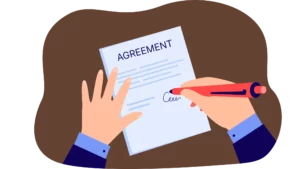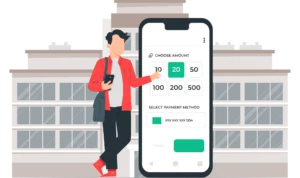Starting an Airbnb business requires time and effort. Just like any other business venture, you need to gain deep understanding of the business before venturing into it. Before creating an account on Airbnb, let’s understand what it takes to run an Airbnb business.
In this article, we’ll take you through ‘How to start an Airbnb business?’
How to Start an Airbnb Business?
Step 1: Find the Right Property
Before diving into starting an Airbnb business, thorough research is essential to determine its viability and set the groundwork for your business plan.
Here’s what to focus on:
- If you don’t already own a property and aren’t bound to a specific area, explore locations that offer the best return on investment.
- Assess property prices in your target areas. Is the cost of entry reasonable, and are there affordable options available?
- Determine if you qualify for loans or other financing options to cover property costs.
- Analyze whether the vacation rental demand in your chosen area justifies the investment. Will the return on investment (ROI) make the venture profitable?
- Once you’ve identified a potential location, explore Airbnb to evaluate competitors. Look at property types, nightly rates, amenities, target customers, and any opportunities they might be missing that you can capitalize on
While you’ll go deeper into these aspects when drafting your business plan, having a clear, preliminary idea will help ensure your Airbnb business is both feasible and profitable.
Have a property in mind and want quick analysis: Try Revenue Estimator Pro!
Revenue Estimator helps estimate the potential income a new property can generate before making a significant decision. evenue Estimator Pro gives you an idea of the revenue of similar properties in the area and lets you compare similar properties in your locality with our compset.
Try Revenue Estimator ProStep 2: Check Permissions and Regulations
Researching the rules and regulations in your target area is a crucial step when starting an Airbnb business—important enough to highlight separately.
With vacation rental regulations increasing nationwide, overlooking this aspect could jeopardize your business. Investigate local laws to see if vacation rentals are prohibited, highly regulated, capped, or subject to fines. While these rules might not prevent you from moving forward, they could introduce extra hurdles.
Regulations extend beyond local laws. If you own a property, you’ll need approval from your mortgage provider and possibly your homeowners’ association (HOA). If you’re renting or living in a co-op, ensure you have the necessary permissions from your landlord, co-op board, or HOA before listing the property on Airbnb.
Also, review your lease carefully for subletting clauses, and check whether your HOA imposes restrictions on short-term rentals. Ensuring compliance from the start will save you from potential setbacks later.
Step 3: Create an Airbnb Business Plan
You don’t need to have everything figured out, but it’s crucial to know your next five steps—and that’s exactly what an Airbnb business plan helps you map out. It serves as your blueprint, covering everything from market strategy to daily operations. Start with an executive summary that highlights your goals, target market, and vision. Follow this with a company overview and a deep dive into market analysis, identifying trends and opportunities in the short-term rental industry. Use customer and competitor analyses to understand your audience and how to stand out.
Your plan should also include a solid operations strategy, detailing property management, guest communication, and booking systems. A marketing plan outlines how you’ll attract guests, from branding to promotions, while a pricing strategy ensures competitiveness and profitability.
Financials are a key component, encompassing start-up costs, revenue projections, and a break-even analysis to guide investment decisions. Address potential challenges with a legal and regulatory overview, ensuring compliance with local laws, insurance needs, and rental agreements.
Lastly, the team and management section should define key roles, hiring plans, and strategies for maintaining quality service. With this comprehensive plan, you’ll be prepared to tackle the unique challenges of the Airbnb model and ensure long-term success.
Need help with this step? We have exactly what you need - Free templates!
New to the vacation rental business? We’re here to simplify the process and guide you in creating an Airbnb business plan that sets you up for success!
Download NowStep 4: Understand Your Tenants
By this step, you should have your property sorted. The next step is to ensure that the property is ready to host your dream guests. For example, if your property is in Vermont, then your peak season is going to be winter and people going to be there to ski! Your property is ready to host skiers. Or if your property is in the city center in Chicago, you should be ready to host a lot of business travelers.
Understanding the kind of guests your property might get is important because only then can you provide the best experience for your guests. This is especially important if you want to get a lot of good reviews (believe me, this is important!).
You should also look at similar properties in your area and undetrstand what your target demographic wants and is getting in that locality. Consider everything right from the kind of furniture, to amenities that you would provide for your guests.
💡 Pro Tip: Use PriceLabs Market Dashboard to research your target market.
Understanding your target market thoroughly is of utmost importance. Why? Only then can you price your property accordingly. The right price will only get you the required balance between profit and maximum occupancy.
Create your Dashboard Now!Step 5: Register your Airbnb Business
Before listing your property on Airbnb, it’s important to establish a legal entity.
Many Airbnb hosts choose to form a limited liability company (LLC), which offers several benefits:
- Separate your finances: Open a business bank account to keep your personal and business finances distinct.
- Tax savings: An LLC can provide tax advantages.
- Personal asset protection: In case of a lawsuit, your personal assets will be protected.
- Privacy: Shield your personal information from potential predatory customers.
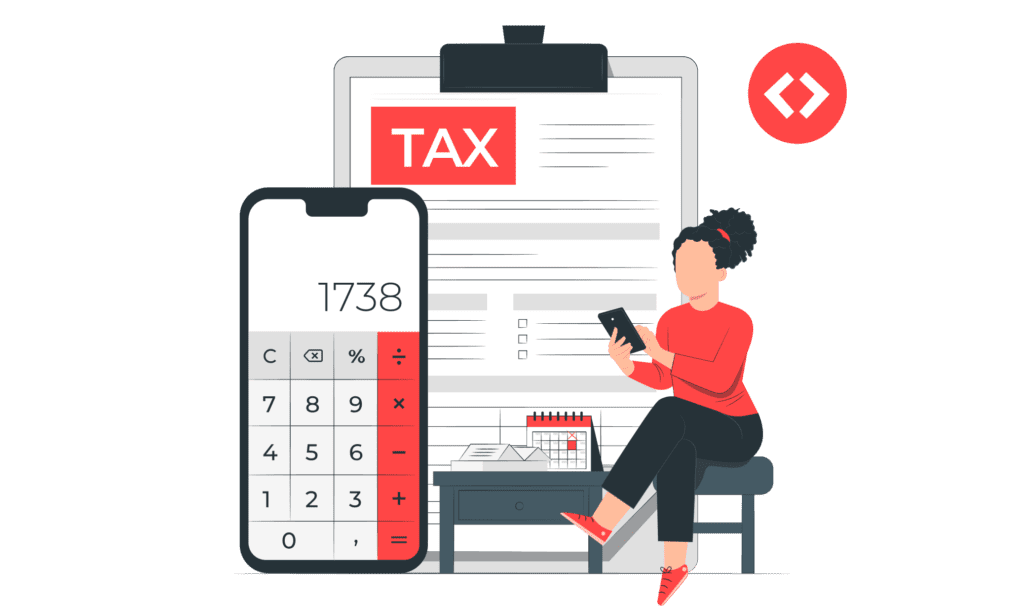

How to Start an Airbnb Business LLC?
The process for setting up an LLC varies by state, so it’s wise to consult a local attorney or financial advisor.
However, here are the basic steps and documents you’ll likely need:
- Business name: Choose and register a unique name for your LLC.
- Registered agents: Designate someone to receive legal documents on behalf of your business.
- Operating agreement: Outline how your LLC will be managed.
- Articles of Organization: File this form, usually found on your Secretary of State’s website.
- Business licenses and permits: Ensure you have the proper permits to operate legally.
- Statement of Information: Submit this document as required by your state.
- Local licenses and registrations: Comply with any additional local requirements.
- Tax forms: File IRS forms 1065 and 8832, and check for local tax obligations.
By setting up an LLC, you’ll create a solid legal foundation for your Airbnb business, protecting both your finances and personal assets.
Step 6: Prepare your Airbnb Rental
Now that you have an understanding of the market and your target audience, the next step is to prepare your rental for those guests. If it’s a new property, you don’t have to do a lot of things. However, if it is a property that you already own and have been using for a while, it might require a lot of work, such as:
- Remove all your personal information from the property
- Repaint if necessary
- Check the condition of the furnishings and other amenities available in the property
- Deep clean the property
- Check with local HOA for permissions
If your property is new, you should still deep clean the property once before opening it for Airbnb stays. You should then equip it with the necessary amenities
If you’re going to also be in the locality or the property, then you would be able to handle check-in/check-out process and the other operational processes as well on your own. If you’re not going to be present, then you should also look at hiring local help (this can mean getting an Airbnb co-host onboard) to take of the operational tasks.
Step 7: Set your Price
Once you’ve made the property ready to be listed on Airbnb, you should then decide on the price. This is probably one of the most crucial aspects because the right price would lead to decent profit for you!
The first thing to consider when deciding your price would be your expenses, you should account for:
- Cleaning costs which would include cleaning crew and the supplies cost.
- Amenity upkeep cost which should include the bedding, toiletries, and etc’s cost.
- Airbnb service fees – there are various options to choose from; which we’ve detailed in our article: What is Airbnb Service Fee? How Much Does Airbnb Charge?
Once you’ve sorted this out, you sould consider how are others in the area pricing their property. You should only compare your property with others that are similar to yours. For example, if your property is: 2BHK sea facing property, then you should compare yours with other 2BHK sea facing properties.
Let’s say the average cost you’re seeing is $250. Then you should also price yourself in the same range. However, because you’re new in the market and do not have any reviews to build trust, it would be better to price yourself a little lower than the market to ensure that you get bookings. You can gradually increase your rates as and when bookings roll in.
Don’t Know How To Price Your Property? Use Our Base Price Help Tool.
Our Base Price Help Tool will analyze your market and similar listings in the locality, compare them with yours, and suggest an accurate Base Price for your property. The Base Price will be the average rate for your property for the year.
Sign Up For Our 30-day FREE Trial Now!Step 8: List Your Property
Listing your property on Airbnb would be the next step! While, flowery language is important it is also important to remain honest in your listing. Let’s say your property is next to the train track, you should mention it! If there is a hospital nearby, you should definitely mention it. Let’s remember: Honesty IS the best policy!
Key things to do in this step:
- Add high-quality photos to your listing that take your guests through your property virtually.
- Include an accurate listing description that provides all necessary information for a guest to make a decision.
- Inclde a title that makes your property easy to find on Airbnb.
- Add all amenities available to your guests in your property.
- Mention anything else that would be important for your guests to know.
Understand Airbnb Hosting Tips to Provide the Best Experience For Your Guests!
You have to carefully tailor your property according to the experience that your guests are looking for. It is difficult to do the research on your own. So, we did it for you!
Read our Airbnb Hosting Tips Now.Step 9: Get Insured
As an Airbnb host, the AirCover for Hosts program provides comprehensive protection to give you peace of mind. Airbnb offers up to $1 million in Host Liability Insurance, covering you if you’re legally responsible for guest injuries or damage to their belongings, even in shared areas like hallways or lobbies.
The Host Damage Protection covers up to $3 million for property damage caused by guests, including vandalism, accidental harm, or issues like pet damage and smoke odors. Airbnb ensures you’re reimbursed for unexpected events that affect your property.
Additionally, hosts can set a security deposit to cover minor damages. If an issue arises, Airbnb can help facilitate claims using the deposit, offering an extra layer of protection.
To minimize risks, Airbnb uses advanced identity verification and reservation screening, including background checks in regions where legally allowed, helping to prevent disruptive guests.
Airbnb also provides 24/7 support in multiple languages, with Superhosts receiving priority assistance for faster issue resolution.
You can further safeguard your property by setting and enforcing house rules that guests must agree to before booking. If these rules are violated, you can report the guest, and Airbnb will take appropriate action, which may affect the guest’s future booking abilities.
Step 10: Start Hosting
Now you’re ready to start hosting. When welcoming a guest into your property, you should provide them the following:
- Detailed check-in instructions so that they know how to get to your property.
- Airbnb welcome book to ensure that they have all the information necessary to stay at your property.
During their stay, it is important that you are available to answer their queries. At the end of the stay, request for Airbnb reviews from them, so that you have constructive feedback to make the stay better for the next guest. An added perk is that more reviews will lead to increased trust amongst other potential guests which will lead to increased bookings!
How Much Money Can You Make Starting An Airbnb Business?
On average, Airbnb hosts in the United States earn over $14,000 per year, according to Airbnb, but actual earnings can vary widely. Some hosts manage multiple properties, renting them out full-time, while for most, hosting serves as a side hustle rather than a primary income source.
Your earning potential primarily depends on two factors:
- Nightly Rate: How much you charge for your space.
- Occupancy Rate: How often you can rent it out.
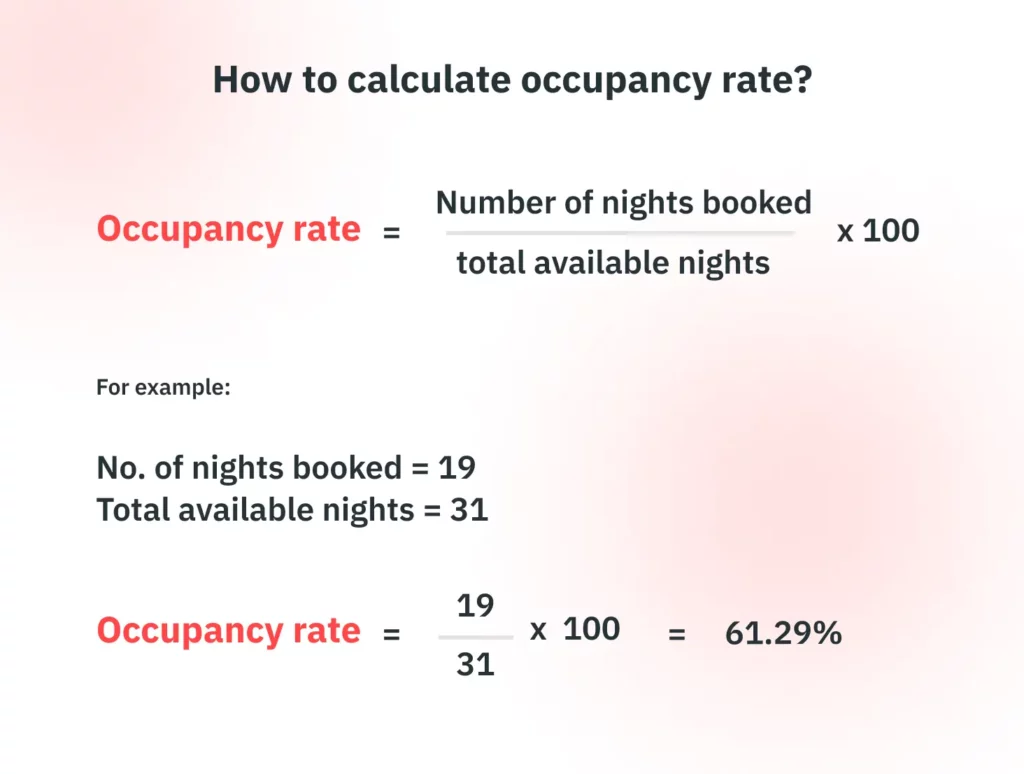

Both factors are influenced by the time and money you invest in furnishing and maintaining your Airbnb property. Airbnb operates in over 100,000 cities worldwide, boasting more than 7 million listings, so competition can be fierce.
It’s important to set realistic profit expectations, especially if you can’t commit significant time and energy to hosting. The more effort you put into creating a beautiful, functional, and comfortable space, along with timely responses to guest inquiries, the better your reviews will be. You’ll be rated on overall experience, accuracy, cleanliness, communication, check-in, location, value, and amenities. Positive reviews can boost your visibility in Airbnb’s search rankings, leading to more bookings.
To maximize your earnings, focus on both your average daily rates (ADR) and your occupancy rate. Enhancing your property’s appeal and managing the guest experience from check-in to check-out will contribute to positive reviews, ultimately driving more bookings. As you gain experience, you can adjust your expectations and pricing strategy to better reflect your growing expertise.
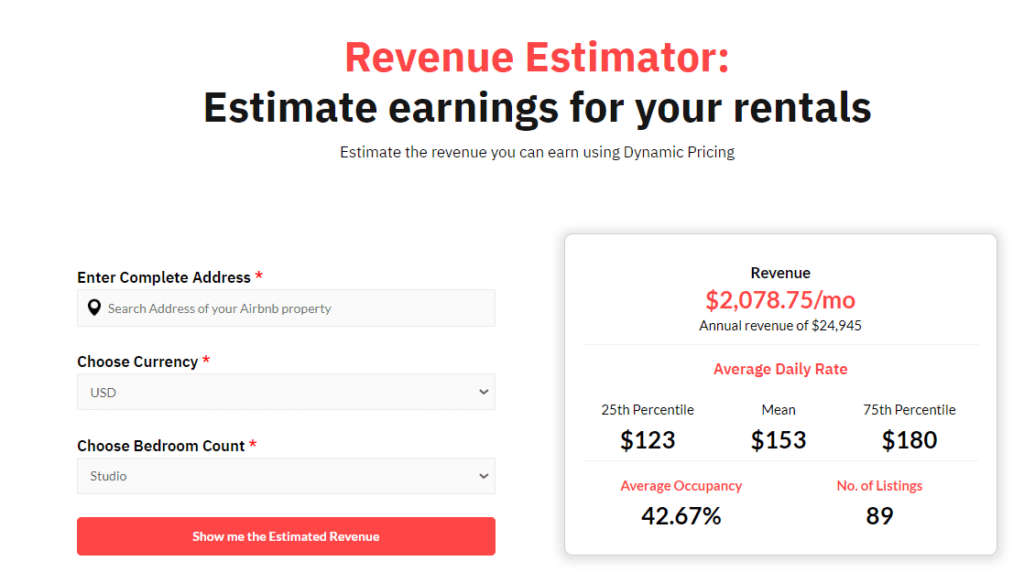

Get Revenue Estimates in Minutes!
Add your address, bedroom count, and currency details and our algorithm will tell you how much you can earn!
Try it Now.Conclusion
Following these easy steps, you will know how to start an Airbnb business. But remember, it’s not just about making money – it’s about making guests happy.
But beyond the steps and strategies, hospitality is a crucial element that can set you apart. Treat your guests like friends, not just customers.
You can turn a simple stay into something truly special in this journey. Embrace the role of a host, and watch your Airbnb business thrive while making travelers’ trips extraordinary.



